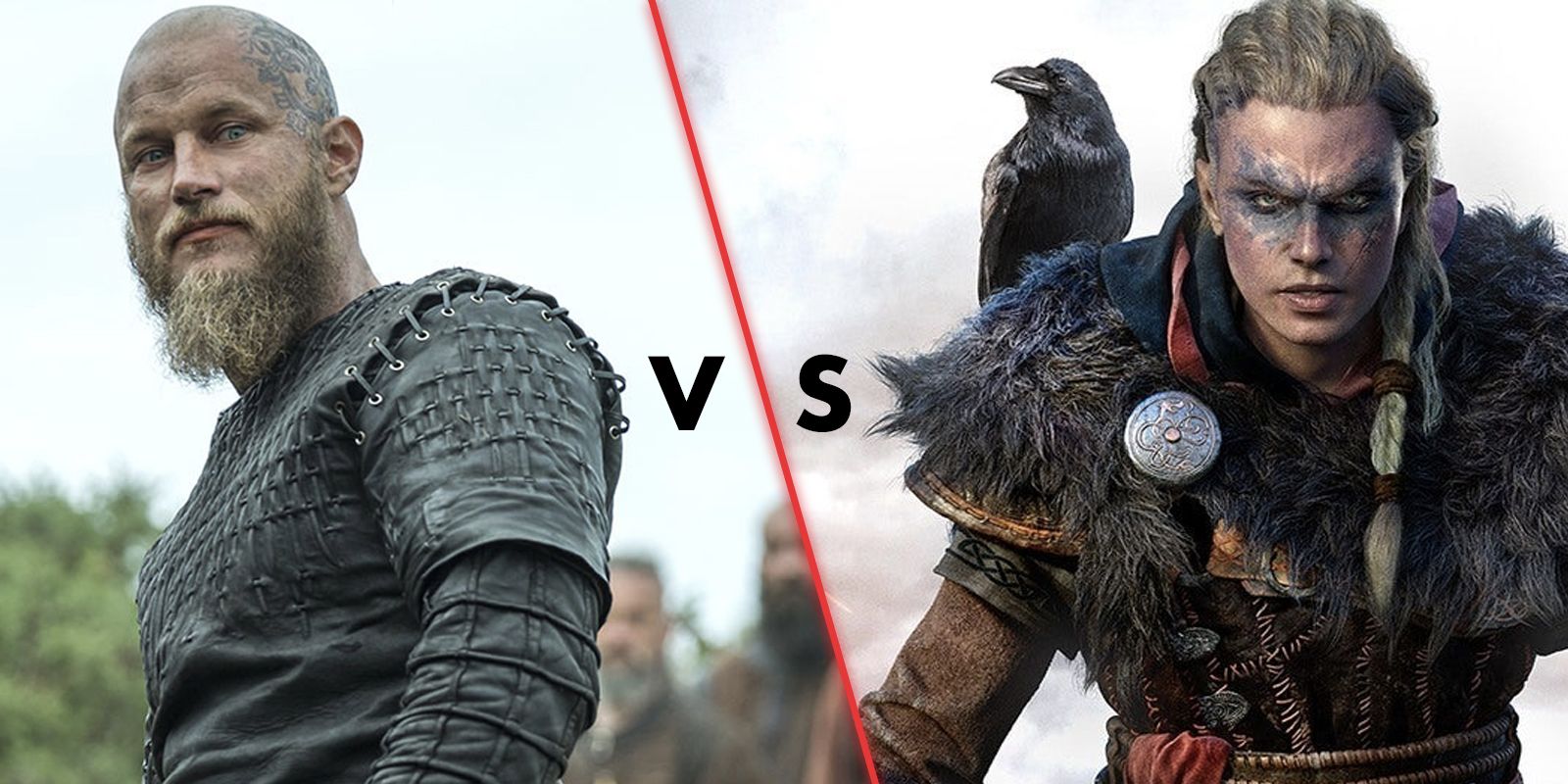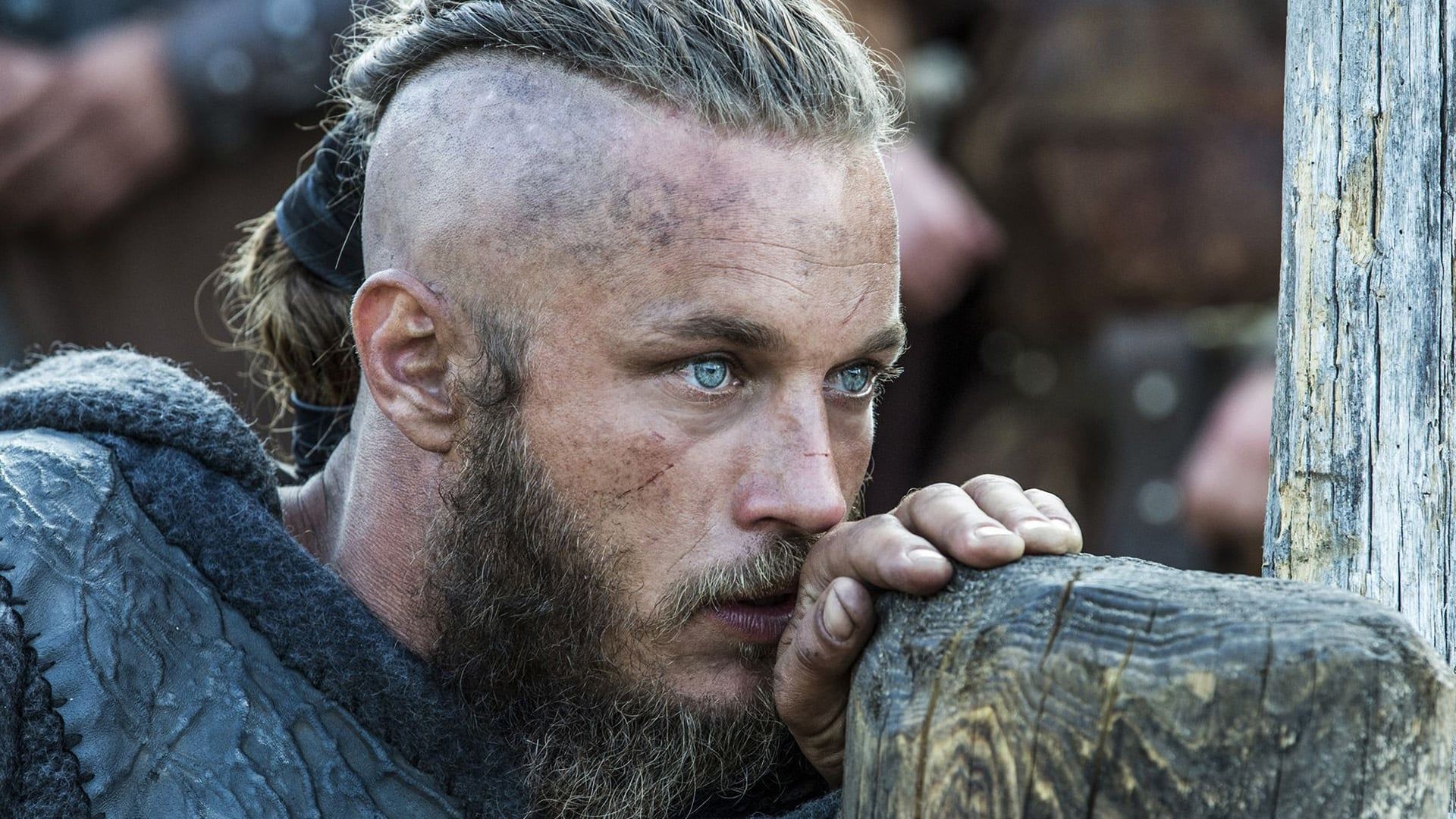
Ubisoft's Assassin’s Creed Valhalla and History Channel’s Vikings are both relatively historically accurate adaptations of the infamous Norse raiders. In fact, both pieces of media cover roughly the same moment in history and have an overlapping cast of characters. But which depiction of Vikings is more accurate?
Both Vikings and Assassin’s Creed Valhalla are set at the dawn of the Viking Age. The Viking Age covers the span of 793 AD to 1066 AD. Lovers of British history will recognize that this time period begins with the sacking of Lindisfarne Abbey by Norse raiders and ends with the Norman Conquest of England. This is because Lindisfarne was the first major coordinated Viking raid in the region and established a Norse foothold on the British Isles. The Normans were also of Norse descent, but they had settled down into a “legitimate” Christian nation, so their invasion represents the end of an era. Vikings and Assassin’s Creed Valhalla examine the clashes between Anglo-Saxon and Norse culture which caused the slow transition of Vikings from bands of pagan pirates to Catholic kingdoms.
With that being said, which take on the era is closer to the historical record, Assassin’s Creed Valhalla or Vikings? This is a tricky question, because the historical record itself is not completely settled. Many of the greatest Vikings are attested to only in later epics which are full of legendary, ahistorical details. As a result, history’s most complete accounts of the lives of Viking heroes are also the most full of mythical elements and Norse gods. The difference between the historical approach of Assassin’s Creed Valhalla and Vikings is perhaps best summed up in their treatment of these greatest Viking hero - Ragnar Lothbrok.

Ragnar was a legendary Viking ruler who historians believe was based on a real person. The Ragnar of Vikings is a commoner who ascends to political power after sacking Lindisfarne; the Ragnar featured in Assassin’s Creed Valhalla's gameplay is already more myth than man. In reality, little about the historical Ragnar is known for certain other than his founding of the Great Heathen Army, which ancient sources claim Ragnar’s sons went on to lead. Assassin’s Creed Valhalla acknowledges this uncertainty by starting its story after the death of Ragnar and following his sons’ attempts to create a dynasty in the shadow of his growing myth.
Early in Assassin’s Creed Valhalla's plot, a loyal follower of Ragnar’s refers to him in reverent, almost religious terms. The disciple recalls how when the two were young, Ragnar slew a bear with only a knife by jumping on its back and “writhing like a fly on a dragon.” Ragnar is also contrasted to Saint Peter by a vendor selling relics of Ragnar’s and “the first pope.” This is a coy choice by developer Ubisoft, as scholarship contends that Saint Peter was a historical person who attained a mythical stature, possibly within his own lifetime. In contrast, the younger Ragnar of Vikings remains very much a human being.
Ultimately, the question of which piece of media is more historically accurate comes down to whether one considers faithfulness to historical sources or writing plausible historical fiction more accurate. Assassin’s Creed Valhalla hues somewhat more closely to the heightened dramatic world of Norse epics which serve as a major source of historians’ knowledge of the Viking. Meanwhile, Vikings seeks to do justice to those stories while also presenting them in a more grounded, realistic light.
Vikings and Assassin’s Creed Valhalla are distinct but equally valid adaptations of the Viking mythos. While the TV series prioritizes a grounded, gritty approach typical to prestige television dramas, the video game draws on the epic source material’s magical elements to create a fantasy world appropriate for an RPG. Though Vikings strikes a more realistic tone, both it and Assassin's Creed Valhalla are true to the sources which help shape history’s understanding of the Viking Age.
from ScreenRant - Feed https://ift.tt/2IJOtVB


0 Comments